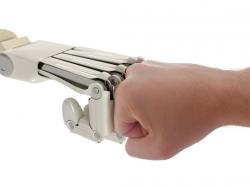Can Robot Butchers Do One Of America's Most Dangerous Jobs?
August 22, 2016 | 2 min to read

Your meat may soon be prepared by a robot butcher. Sadly, it won’t be an android in a striped apron behind the meat counter at your local store, asking you in a metallic voice how you’d like your steak cut today, sir/ma’am? These robots will replace workers at meat-packing factories, and not a moment too soon.
The meat-packing company JBS is part of the world’s largest beef processor, and in its Greeley, Colorado plant, it is experimenting with robots on the production line. In order to automate the processing of the meat, JBS has invested in a New Zealand robot company called Scott Technology. According to a recent NPR program, automating production would trim the $100 million that JBS pays to its employees every year.
The problem is that robots aren’t nearly as good at people when it comes to dismembering a carcass, and this is especially so for beef, which varies more than other animals like pigs and lambs. A human can slip a knife between a bone and a muscle and gently ease the two apart, working more on feel than sight. It’s delicate work. Robots are much less adaptive and better-suited to repetitive, identical tasks, like those involved in building a car. And when meat is sold per-pound, you want to leave as little as possible on the bone.
To read the rest of the story, please go to: Fast Coexist
